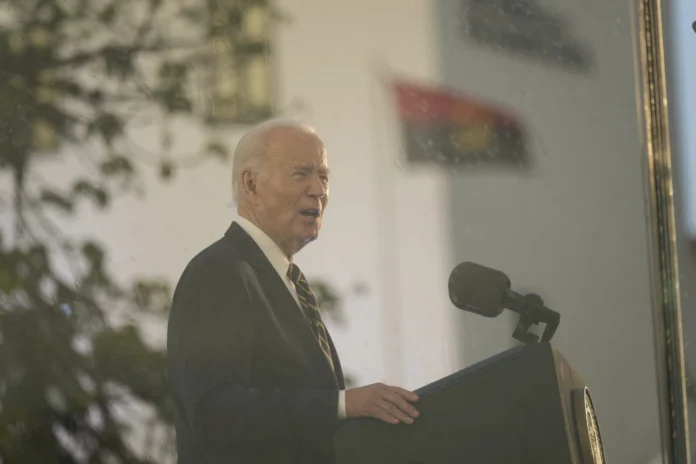In a press conference Tuesday in Angola, President Joe Biden pledged to give Africa $4 billion in aid for the Lobito Corridor railway redevelopment linking Zambia, Congo and Angola. The Corridor will connect the Atlantic and Indian Oceans.
The Corridor across southern Africa will make it easier to ship raw materials for export such as critical minerals used in batteries for electric vehicles, electronic devices and clean energy technologies.
In September, Secretary of State Antony Blinken announced the completion of an initial feasibility study and launch of the environmental and social impact assessment for the Lobito rail project, a greenfield 800-kilometer rail line being built linking Angola and Zambia.
President Biden announced more than $560 million in new funding, including commitments expected to generate at least $200 million in additional private sector capital, for infrastructure projects along the Corridor, bringing the total for U.S. investments to more than $4 billion.
The construction of the line will take several years, which means President-elect Donald Trump would decide whether to move forward with the commitment Biden has made to Africa.
Here at home, the areas of Southwest Virginia and Western North Carolina are still struggling to get debris cleared, businesses opened back up and housing secured for thousands of residents.
In Virginia, Grayson and Washington Counties experienced severe flooding in streams, including Whitetop Laurel. The road that borders Whitetop Laurel, Route 58, was also decimated for about a two-mile stretch.
Wythe and Carroll Counties experienced devastation from the flooding. In Washington County, the Virginia Creeper Trail, which is popular with hikers and bikers, was significantly damaged by flooding and partially closed. Tazewell County had some of the largest numbers of power outages.
A total of 36 localities were affected in Virginia.
While any president has to balance the needs and resources of U.S. aid both domestically and internationally, many have repeatedly asked why immediate, crisis-level needs of Virginians would come behind aid to Ukraine and now business development interests in Africa.
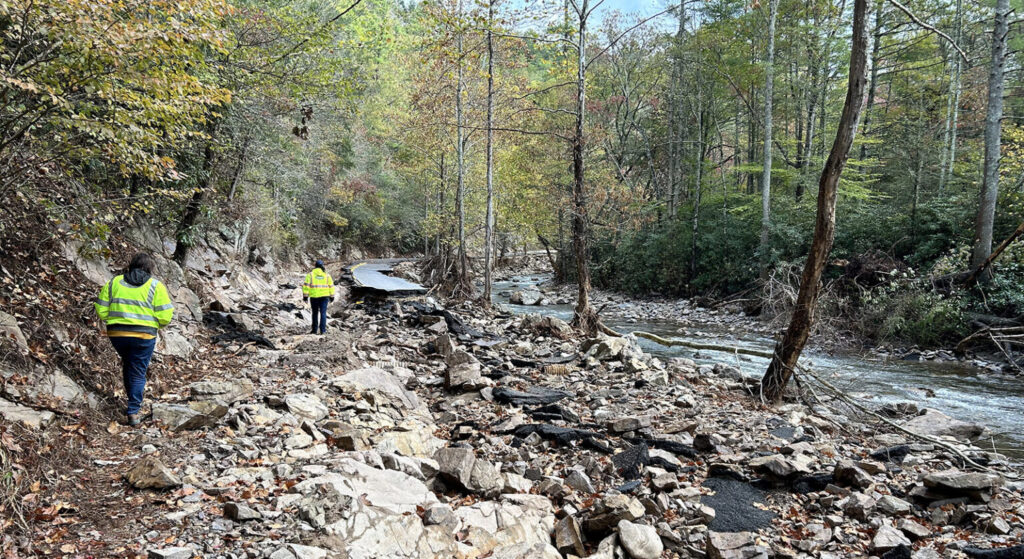
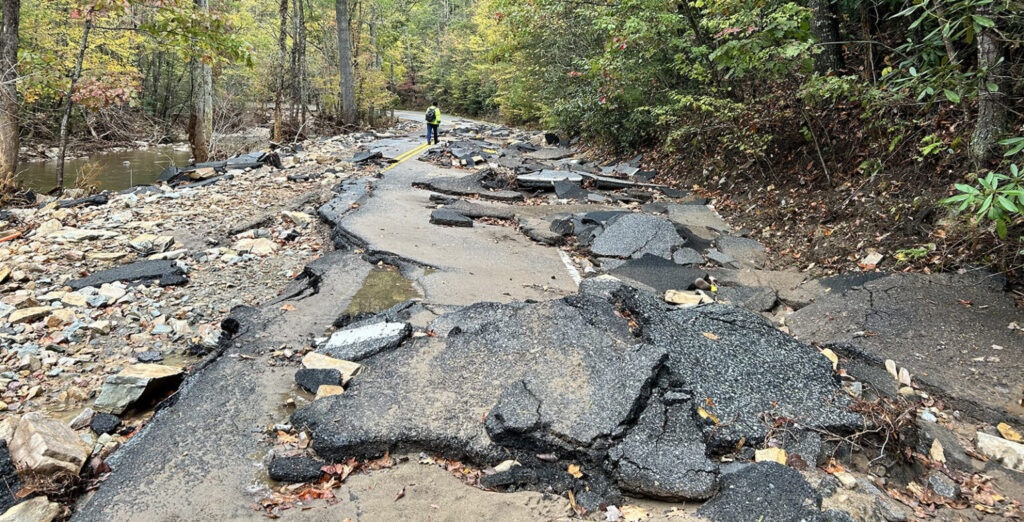
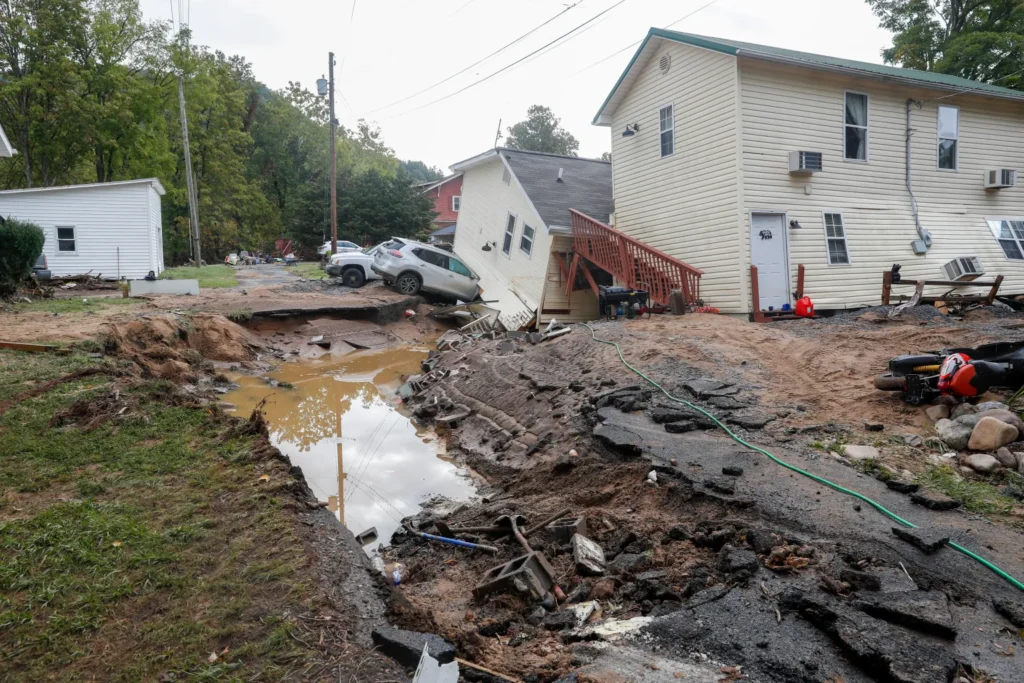
Two weeks ago Governor Glenn Youngkin asked the Biden administration for $4.4 billion in federal support for recovery efforts. The governor has made numerous trips to Southwest Virginia since Sept. 24 when Helene hit ground. He’s also had multiple cabinet briefings. He established the Office of Hurricane Helene Recovery and Rebuilding to ensure affected areas receive necessary support.
Here’s a breakdown of the recovery money requested:
- $1.9 billion to remedy the economic impact of the storm in Southwest Virginia
- $500 million to rebuild and repair housing
- $131 million to repair and rebuild transportation infrastructure
- $340 million to rebuild and repair other infrastructure
- $630 million to rebuild and repair agricultural producers
- $509 million to rebuild and repair parks and recreation
And here’s a breakdown of money to be earmarked for mitigation:
- $75 million to safeguard housing against future natural disasters
- $20 million to transportation infrastructure
- $51 million to other infrastructure
- $94 million to agricultural producers
- $76 million to parks and recreation
He also said his office has been discussing the possibility of state aid with the General Assembly, but first, they need to determine how much aid will be provided by the federal government. As of right now, there is no state aid for small businesses affected by Helene.
The Virginia Economic Development Partnership has conducted an economic impact analysis following Hurricane Helene and found direct and indirect economic impacts of more than $2 billion across the Southwest Virginia region. In the immediate aftermath of the storm, 310,000 Virginia residents were without power and electric distribution infrastructure was severely damaged.
In terms of transportation impact, 484 primary and secondary roads, as well as 118 bridges were closed. As of Nov. 12, FEMA has had nearly 10,000 applications for Individual Assistance and almost 3,000 requests for inspection of damaged or destroyed homes. As of late October, nearly 3,700 farms had been impacted by the by the storm resulting in more than $630 million in direct and future financial impact to Virginia farmers and their communities.
The Federal Emergency Management Agency (FEMA) closed the initial application period for this disaster as of Dec. 2.
Today, Dec. 5, FEMA announced homes may be eligible for acquisition, and the homeowner would be offered a pre-disaster fair-market value for the property as determined by the community. There is appeals process available for homeowners who disagree with the appraisal value of the property.
However, FEMA states that the home acquisition process can take up to two or three years.
The National Flood Insurance Program (NFIP), administered by FEMA, has paid policyholders over $1.4 billion for flood losses stemming from Hurricane Helene recovery, with over 56,000 policyholders having filed claims following the storm’s landfall, according to FEMA.
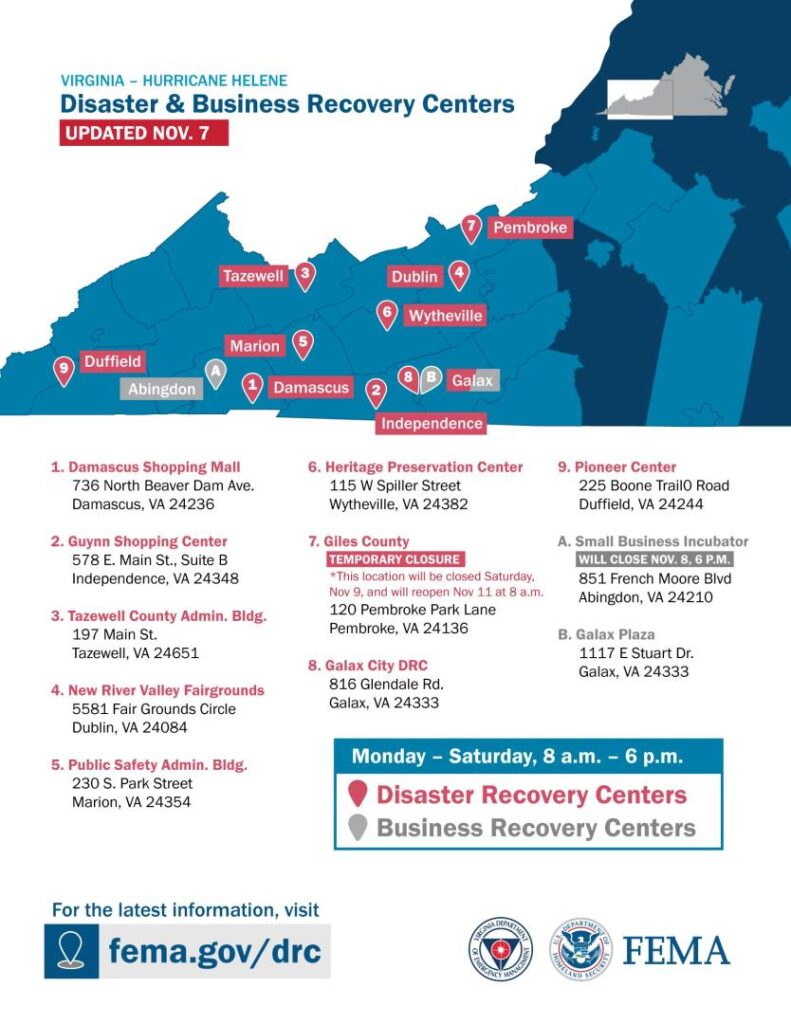
Audrey Carpenter is the Northern Virginia Bureau Chief for All Virginia News. She can be contacted at: audreycarpenter@allvirginia.news
NEWSLETTER SIGNUP
Subscribe to our newsletter! Get updates on all the latest news in Virginia.


